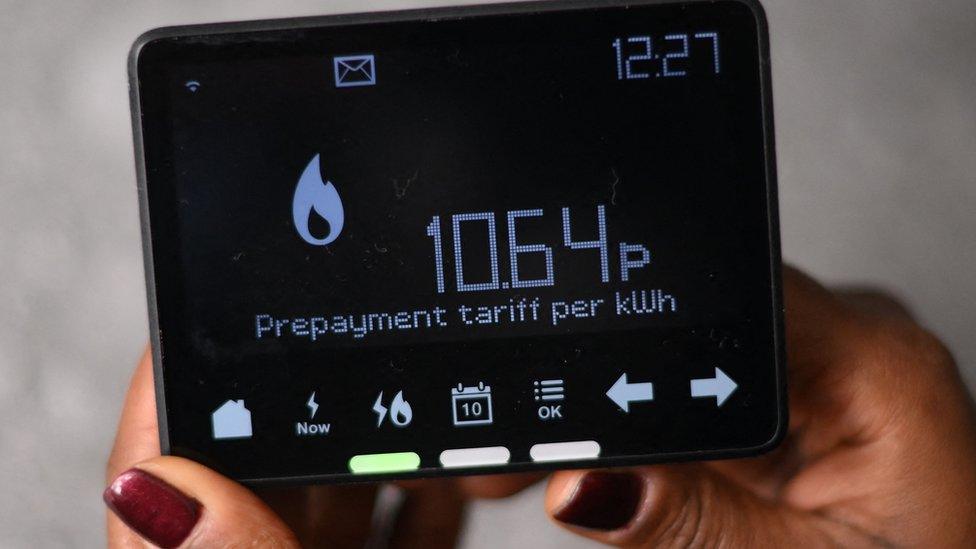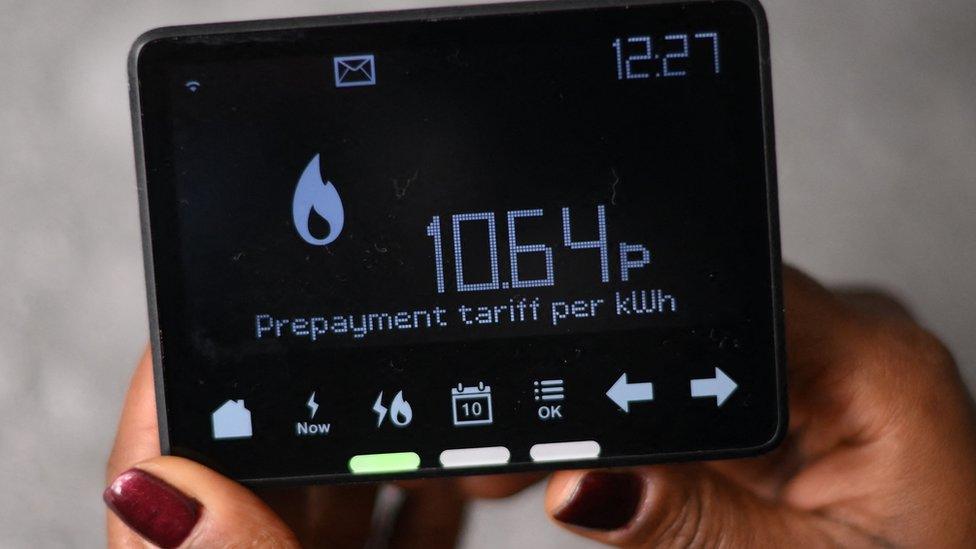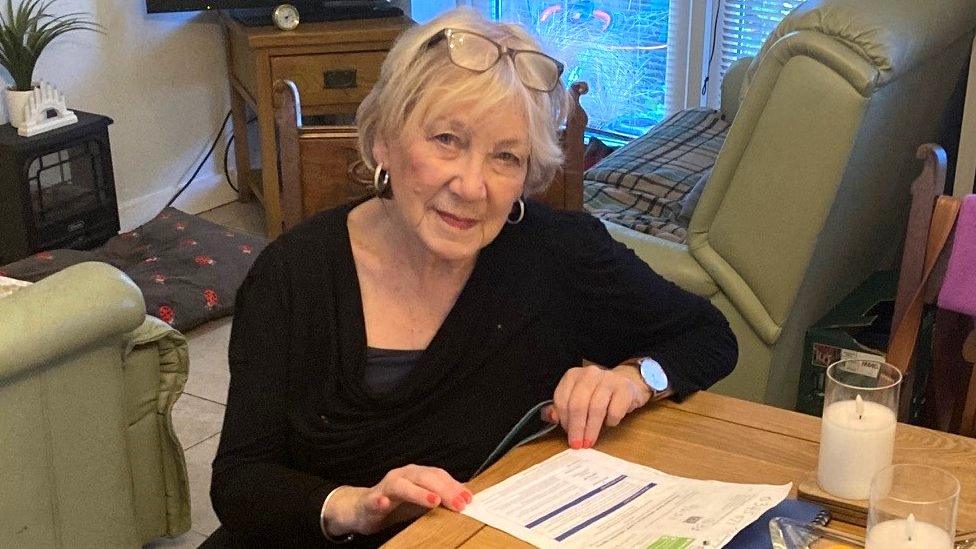Cost of living: Row over who should police energy prepayment switches
- Published

Disagreements over who should primarily tackle the issues of forced prepayment meter switches have emerged in front of a committee of MPs.
Strict rules apply that prevent energy suppliers moving an at-risk customer onto a prepayment meter if they are struggling to pay.
Energy UK, which represents firms, told MPs on the Business Committee that it was "Ofgem's job to enforce".
But the regulator's boss said he was "deeply concerned" by that demand.
Jonathan Brearley, chief executive of Ofgem, said there was a "deep problem with culture and approach" if suppliers were relying on the regulator to ensure they were keeping to the rules, rather than doing so themselves.
"Step one for a chief executive is that they make sure they are looking after their customers," he said.
Customers who are behind on their energy bills can be moved to a more expensive prepayment meter. This can be done remotely on a smart meter, or physically after the firm has been given a warrant to do so.
However, there are rules that should ensure vulnerable customers are not forcibly moved.
In his speech a week ago, Mr Brearley said he was "concerned" about the sharp growth in households being switched to prepayment meters, "sometimes without their even knowing about it".
Watch: A minute of money-saving tips with the BBC's Matt Taylor and Colletta Smith
Charities say vulnerable people who have been switched have not been able to afford to top-up their meter, leaving them in the cold and dark during the winter.
Citizens Advice estimates that 3.2 million people in Britain ran out of credit on their prepayment meter last year, the equivalent of one every 10 seconds.
Earlier this month, Business Secretary Grant Shapps warned he would "name and shame" suppliers who were doing "nowhere near enough" for vulnerable customers.

Why are suppliers allowed to force customers onto prepayment meters?
Before smart meters existed, energy firms would have to get a warrant to enter your home and physically install a prepayment meter
Now, smart meters enable energy firms to switch customers from direct debit payments to a prepayment meter system remotely
Ofgem rules state that energy suppliers must have effective checks and balances in place when switching the mode of a smart meter
The regulator advises customers with concerns to speak to their supplier. Under Ofgem rules they must offer payment plans you can afford and you can ask for emergency credit if you use a prepay meter and can't top up
Breathing Space, sometimes called the Debt Respite Scheme, is a free government scheme that could give you up to 60 days' space from creditors to set up a debt solution. Step Change debt charity can help you to apply, external
Citizens Advice offers this guide: Stop your energy supplier moving you to prepayment, external

Emma Pinchbeck, the chief executive of Energy UK, told the committee that there were "really strong rules" and that if they were being broken then the issues should be raised with the supplier.
But she went on to say that it was "Ofgem's job to enforce".
"I think from the suppliers there's an acceptance that more needs to be done in the vulnerability space, and we're working actively with the consumer groups and government to do that, but I would say that this is a much bigger problem than just prepayment meters or vulnerable customers," she said.
"Bills are still double what they were 18 months ago and we've got about 12 million households, which is about 40% of customers, spending more than 10% on energy. That's the previous definition of fuel poverty."
Related topics
- Published23 January 2023

- Published22 January 2023

- Published12 January 2023
